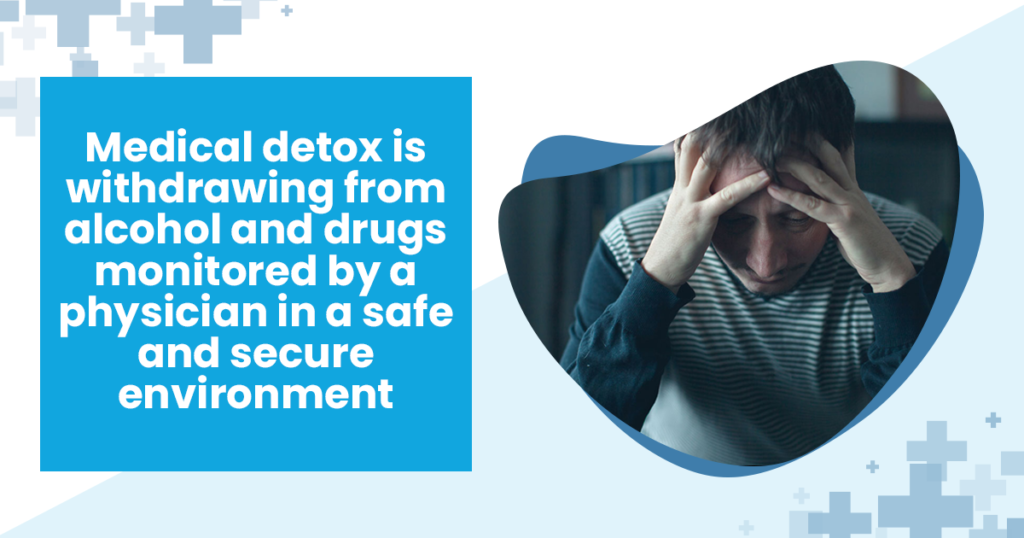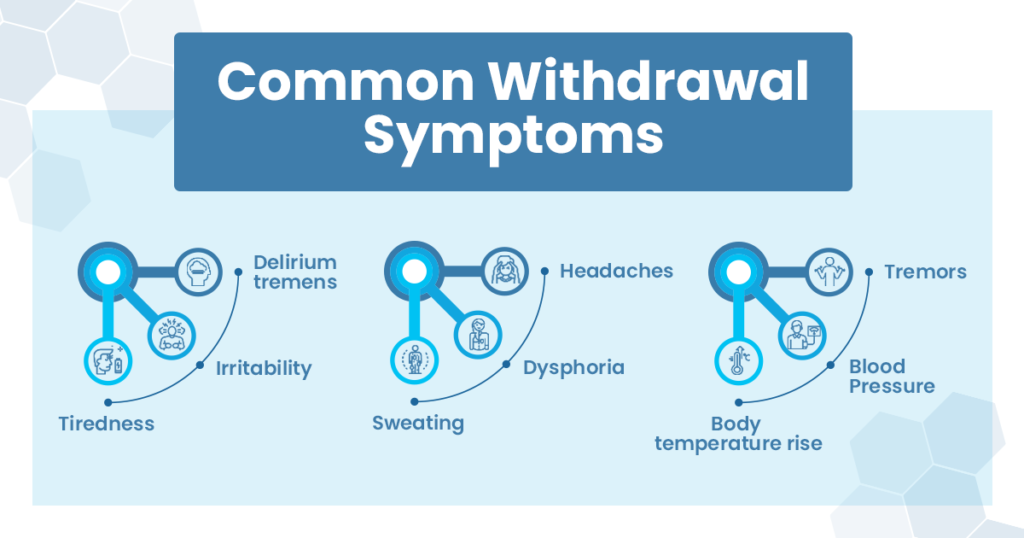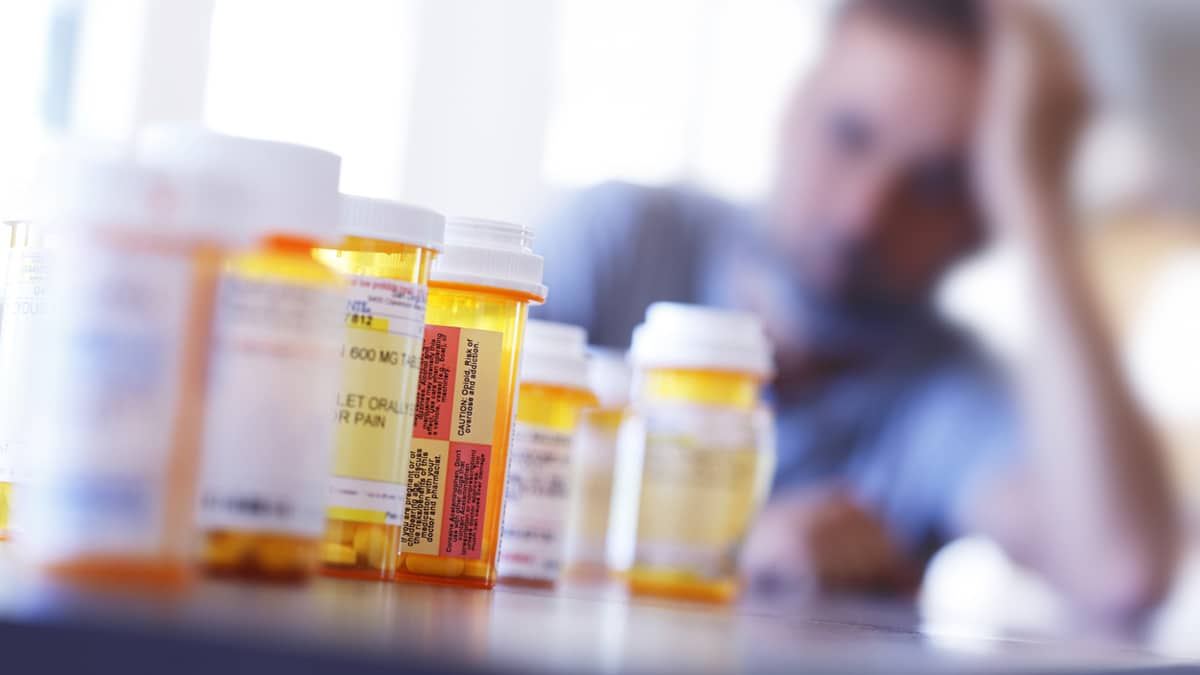
When a person develops a reliance on one or more substances, a sudden reduction or cessation of usage can result in a variety of mentally and physically taxing withdrawal symptoms. Medical detoxification is a means to treat acute intoxication and withdrawal in a controlled setting where doctors and other medical professionals provide comfort care and medications to assist the patient through the detoxification process.
Medical detox is NOT a substitute for complete addiction treatment. However, it is a possible gateway to rehabilitation or other substance abuse treatments. Because medical detox can make the withdrawal process more manageable, it may reduce the probability of an instant relapse and make it simpler for the patient to concentrate on their ongoing recovery efforts.
When Medical Detox Becomes Necessary?
If addiction is a chronic problem, how can one determine when an acute treatment such as detox is required? How do you decide who needs medical detox?
Medical detox is appropriate for addicts who fear they are at risk of becoming physically reliant on a substance.
Physical dependency on a drug is most likely if you exhibit the following symptoms:
- Frequently craving a substance when you do not have access to it
- Need for increased amounts of a substance to get the usual effect
- You have been using a substance regularly in large amounts
- Tried many times to quit the usage of substance and found that you could not do so without help
- Experienced a diminished effect over time from using the same amount of a substance
- Used a substance over an extended period
Most often, individuals with substance use problems seek medical detox treatment when they are at risk of suffering the symptoms of alcohol or drug withdrawal. In conjunction with tolerance (the requirement for increased drug doses to get a particular effect), withdrawal shows that the body has grown physiologically reliant on a substance.
Each substance has its own unique pattern of symptoms of withdrawal, which are triggered by chemical reactions within the body and manifest themselves when use is decreased or discontinued.
Why is Medical Detox Important?
Medical detox is essential because it ensures you are physically and psychologically prepared to begin recovery. A detox might be difficult, but it is necessary for long-term recovery.
When hooked to drugs or alcohol, the body gets contaminated with toxins. Toxins can harm your health in various ways, including liver damage, kidney damage, and heart disease. Medical detox helps to cleanse your body of these toxins, allowing you to begin your recovery with a clean slate.
In addition to harming your physical health, a substance use disorder may also affect your mental health. Medical detox can assist in stabilizing your mental health so that you can begin addressing the root reasons for your alcohol or drug addiction.
When you are physically and psychologically prepared for treatment, it is more likely to be effective. Medical detox puts you in the best possible position to begin treatment and advance your recovery.
What Happens After Detox?
The National Institute on Drug Abuse (NIDA) states that medical detox is “the initial stage of treatment.” Detox alone is insufficient to address a person’s addiction since it focuses solely on physical dependency and does not address the social, psychological, and behavioral concerns associated with addiction.
Whether you participate in inpatient or outpatient treatment, you will have the chance to determine the underlying causes of your problematic drug abuse. They can help you acquire the skills necessary to fight cravings, handle triggers, and build coping mechanisms.
Both inpatient and outpatient treatment programs can benefit patients and support their rehabilitation. Recovery meetings, such as those sponsored by various 12-step organizations, are often a part of rehabilitation and are encouraged after you leave treatment to remain connected to a sober community and receive and provide support.

Frequently Asked Questions (FAQs)
What does detox mean in medicine?
Detoxification is the first stage in addiction recovery. Under medical supervision, detoxification involves eliminating dangerous and addictive chemicals from the body. Many individuals seek detox when severe withdrawal symptoms from alcohol or drugs are imminent.
What is involved in detox?
Medical detoxification is the process by which all traces of alcohol and drugs are eliminated from the body, preparing the individual to begin treatment to overcome their addiction. It is not necessarily a component of addiction treatment, although it is often expected while entering rehab.
How long does it take to detox your body?
Detoxification from alcohol or drugs entails eliminating harmful compounds from the body while concurrently controlling withdrawal symptoms. Typically, detoxing lasts between three and ten days. A more severe addiction, however, might delay detoxification by many weeks or months.
How is detox helpful for Drug & Alcohol addiction?
Detoxification is a collection of interventions designed to treat acute intoxication and withdrawal. It refers to eliminating toxins from the body of a profoundly drunk patient and/or dependent on drugs and alcohol. Detoxification aims to decrease the physical damage caused by drug usage.
Find Treatment Options at The Haven
The Haven provides a range of detoxification programs to facilitate a safe and efficient withdrawal from alcohol and drugs. Our medical professionals will work with you to develop a detoxification program and treatment plan tailored to your specific requirements.
We provide ongoing care and support so that you can get help when you require it. Call our counselor at (561) 328-8627 now to learn more about medical detoxification and what post-detox treatment may involve.
Contact The Haven Detox at (561) 328-8627 for more information regarding Medical Detox.











